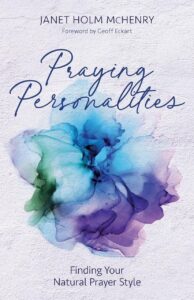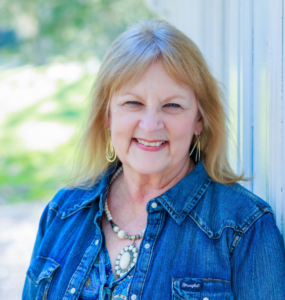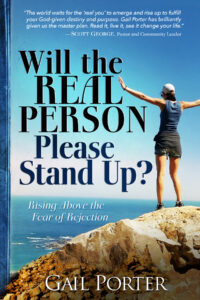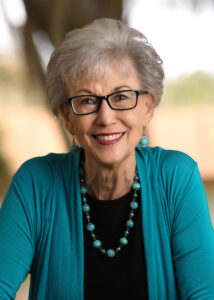
Photo by Allef Vinicius
WHEN LIFE THROWS us a curve ball we may find ourselves off balance. It’s hard to find direction. At these times it can help if we become intentional by sitting down and setting specific goals – both short term and long term ones. New Years is a great time to do that.
If you’re feeling off balance and are looking into a 2024 that feels uncertain and unsettling, I suggest you print off this page, get a pen, a Bible and a cup of coffee and sit down prayerfully to map out your hopes and goals for the new year. Ask God to give you direction as you hold onto His promises and look at the different areas of your life. When doubt and uncertainty rocks your world, setting goals for yourself can brighten the path ahead.
GOAL SETTING FOR THE NEW YEAR
I. PERSONAL GOALS:
Practical Steps For Achieving:
“And my God will meet all your needs according to his glorious riches in Christ Jesus.” Phil. 4:19
II. MARRIAGE AND RELATIONSHIP GOALS:
Practical Steps For Achieving:
“Submit to one another out of reverence for Christ.” Eph. 5:21
III. FAMILY GOALS:
Practical Steps for Achieving:
“Love is patient; love is kind. It does not envy; it does not boast; it is not proud. It is not rude; it is not self-seeking; it is not easily angered; it keeps no record of wrongs. Love does not delight in evil but rejoices with the truth. It always protects, always trusts, always hopes, always perseveres.” I Cor. 13:4-7
IV. CAREER GOALS:
Practical Steps for Achieving:
“Commit to the Lord whatever you do, and your plans will succeed.” Prov. 16:3
V. ATTITUDE GOALS:
Practical Steps for Achieving:
“…be made new in the attitude of your minds, and to put on the new self, created to be like God in true righteousness and holiness.” Eph. 4:23-24
VI. GOALS OF SERVICE TO GOD AND OTHERS:
Practical Steps for Achieving:
“And do not forget to do good and to share with others, for with such sacrifices God is pleased.” Heb. 13:16
VII. SPIRITUAL GOALS:
Practical Steps for Achieving:
“And we pray this in order that you may live a life worthy of the Lord and may please him in every way, bearing fruit in every good work, growing in the knowledge of God, being strengthened with all power according to His glorious might so that you may have great endurance and patience and joyfully giving thanks to the Father…” Col. 1:10-11
If you’re feeling off balance because of what’s happening in your marriage and need to set some specific goals for moving forward, you might find direction in my book, Fighting for Your Marriage while Separated.
 IS THERE A “right’ way to pray? Many of us have heard various prescriptions about how to make our prayer life more meaningful and effective. But when we try it out, it may seem complicated, awkward, or unnatural. Certain prayer approaches seem to work well for some people but not for others. But maybe, just maybe, that’s to be expected. In author Janet Holm McHenry’s new book,
IS THERE A “right’ way to pray? Many of us have heard various prescriptions about how to make our prayer life more meaningful and effective. But when we try it out, it may seem complicated, awkward, or unnatural. Certain prayer approaches seem to work well for some people but not for others. But maybe, just maybe, that’s to be expected. In author Janet Holm McHenry’s new book,  perspective and attitude.
perspective and attitude. BECAUSE THE PAIN and insecurities we experience in life often affect us in ways beyond our immediate understanding, many of us develop a fear of rejection that can hold us captive and keep us from enjoying meaningful relationships. In her book,
BECAUSE THE PAIN and insecurities we experience in life often affect us in ways beyond our immediate understanding, many of us develop a fear of rejection that can hold us captive and keep us from enjoying meaningful relationships. In her book,  build to protect ourselves from possible rejection. For the first time, I realized that I purposely refrained from sharing much about myself, or my thoughts and ideas, because I feared people wouldn’t like me.
build to protect ourselves from possible rejection. For the first time, I realized that I purposely refrained from sharing much about myself, or my thoughts and ideas, because I feared people wouldn’t like me.

 AS THE NEW YEAR gets underway, we may or may not be looking forward to what lies ahead. But regardless of our situation, there is one thing we can be certain of. If we are trusting God to lead us, we need not fear the future. One tool that can be helpful as we seek God’s wisdom in the Word is having a devotional book to guide us through the Bible. Author Donna Schlachter hopes her devotional book,
AS THE NEW YEAR gets underway, we may or may not be looking forward to what lies ahead. But regardless of our situation, there is one thing we can be certain of. If we are trusting God to lead us, we need not fear the future. One tool that can be helpful as we seek God’s wisdom in the Word is having a devotional book to guide us through the Bible. Author Donna Schlachter hopes her devotional book, 
 IF YOU EVER feel invisible, ignored, and overlooked as though you blend in with the wallpaper when you’re with a group of people, the loneliness you feel can be overwhelming. Author Cheri Strange knows this feeling herself and wants to help you rediscover your true value. Her new book,
IF YOU EVER feel invisible, ignored, and overlooked as though you blend in with the wallpaper when you’re with a group of people, the loneliness you feel can be overwhelming. Author Cheri Strange knows this feeling herself and wants to help you rediscover your true value. Her new book,  alone?
alone? LIFE HAS A WAY of throwing surprises in our path, and some of them aren’t what we’d hoped for. Life can be challenging. How we face those challenges, however, can make all the difference in what our futures will look like. In Lori Vober’s new book,
LIFE HAS A WAY of throwing surprises in our path, and some of them aren’t what we’d hoped for. Life can be challenging. How we face those challenges, however, can make all the difference in what our futures will look like. In Lori Vober’s new book, 








